Escaping High Fuel Prices; a Natural Bridge to an EV
The 2022 Ford Escape Plug-in Hybrid Electric Vehicle (PHEV) is powered by a 2.5-liter non-turbocharged, 4-cylinder engine that produces 165 horsepower by itself, but when adding-in the motor generator that number increases to 200 hp. Running on 87 octane, the front wheels (all-wheel drive is not available) are driven through a Continuously Variable Transmission (CVT) that has five driver selectable drive modes of Eco, Normal, Sport, Slippery and Snow/Sand.
The Environmental Protection Agency, EPA, rates fuel economy at 40 highway when running in gasoline mode only. That number jumps to 105 MPGe, or miles per gallon equivalent, when combining electricity and gasoline. MPGe is a measurement of how far a car can travel, electrically, on the same amount of energy as is contained in 1 gallon of gasoline.
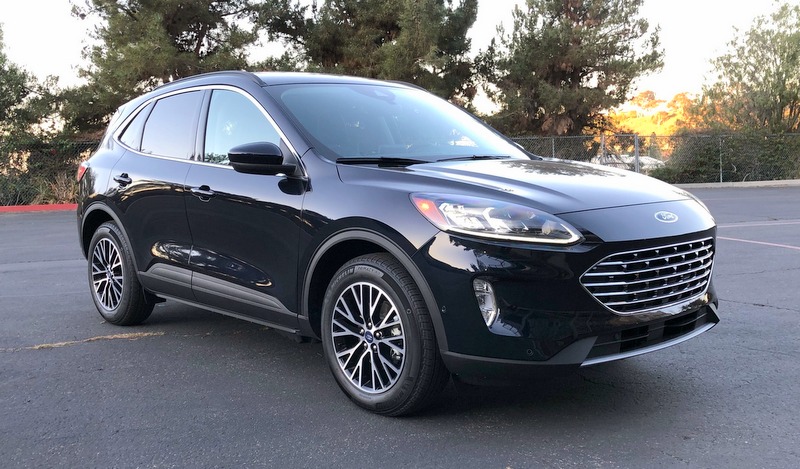
Clean Fleet Report ran a few test loops to get a feel for real world fuel economy and electric range.
66.2 mpg
244 total miles, with 144 all-electric miles
58.6 mpg
72 miles, with 35.3 all-electric miles
∞? mpg
42 miles, with all-electric miles. No gasoline used.
Note: The Escape PHEV is rated by the EPA to have 37 miles of all-electric driving range. Through regenerative braking and the route we took, we were able to drive 42 miles electrically.
The 2022 Escape has three engine choices. The Hybrid and Plug-in Hybrid feature a 2.5-liter 4-cylinder while the non-hybrid models have either the gasoline 1.5-liter 3-cylinder or the 2.0-liter 4-cylinder engines.
Getting Started
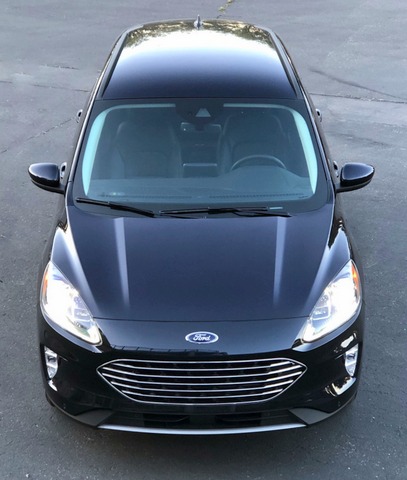
The start/stop ignition button is tucked away behind the steering column, making it one of the oddest locations we have seen. With that aside, when the 14.4 kWh battery is charged, there is no sound upon pressing the start button as the Escape PHEV defaults to electric mode. If it is cold outside or the battery charge is low, then the engine kicks-in, as it does under heavy acceleration (unless you’re in EV Now mode as explained below).
In addition to the above drive modes, there are four power modes designed to maximize the efficiency of the Escape PHEV.
- Auto EV mode allows the computer to decide if the vehicle runs on gasoline or electricity
- EV Now mode lets drivers operate on all-electric power
- EV Later mode gives drivers the option to drive in full gas-hybrid, and conserve a certain percentage of electricity for later use
- EV Charge mode charges the battery while driving
Charging
The Escape PHEV uses regenerative braking, which converts kinetic energy into electric energy and stores it in the battery when applying the brakes or coasting. For increased recharging, there is an “L” button on the gear selector wheel.
In addition to the regenerative charging or the EV Charge mode, the lithium-ion battery can be replenished by plugging into a charger or wall outlet. Charge times from an empty battery are:
Level 1 120V 10 hours
Level 2 240V 3.5 hours
The Escape PHEV does not come with a 480V DC Fast Charge option.
Hitting the Road
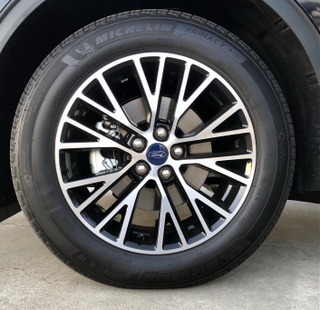
Whether you’re using the Escape PHEV for in-town errands or short commutes, the ride and ease of driving will make the time behind the wheel a pleasant experience. The drive and power modes described above present several options for tailored driving. If you want extra oomph select the Sport mode where we were able to get 0-60 mph times of 8.3 seconds. Normal mode is for around town, Eco when on long stretches of open highway for maximum efficiency, and Slippery and Snow/Sand are self-explanatory.
The Escape PHEV Titanium (its top trim level) has good grip with the Michelin Primacy 225/60 all-season tires mounted on 18-inch machined alloy wheels. The steering was on the heavy side, which we liked for the solid feel it gave the Escape’s 3,870 pounds. While some SUVs have numb steering, reducing road feel, this was not the case with the Escape PHEV, as there was never a time or situation where we felt disconnected from the tires and the road, including feeling planted around sweeping turns.
While not designed nor marketed as a sports crossover, the handling was solid and confident. We did not get the chance to drive in the rain, but our history with front-wheel drive is they track well, take corners with confidence, and provide good traction in wet conditions.
Exterior
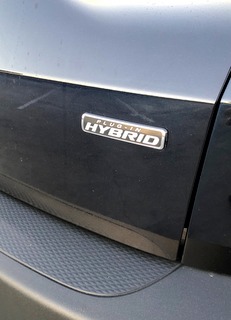
The Escape PHEV takes design cues from crossovers sold in European markets, having a smooth front end with an appropriately sized grille and no unneeded lower fascia scoops. The almond-shaped LED reflector headlamps meld into the fenders that lead to smooth sides, sans chrome and cladding. LED tail lights and a very small “PLUG-IN HYBRID” badge on the lower right corner make up the details of the rear, hands-free foot activated lift gate. The bumper, with a flat top and a skid-resistance surface, incorporates dual exhaust tips. For a cleaner look, the rear wiper could be tucked under the spoiler to increase rearward vision for the driver.
Interior
The Escape PHEV Titanium trim comes with a power panoramic moonroof, which didn’t reduce headroom for front or rear seat occupants. Controls were all within easy reach, and clearly marked, with the 12.3-inch fully digital instrument panel having large tachometer and speedometer gauges. The 8-inch capacitive touchscreen, with swipe and zoom, was home to the AM/FM HD radio, wireless Apple CarPlay, Android Auto, and SiriusXM, and the 10-speaker Bang & Olufsen audio system (with a subwoofer) that sounded great inside the compact cabin.
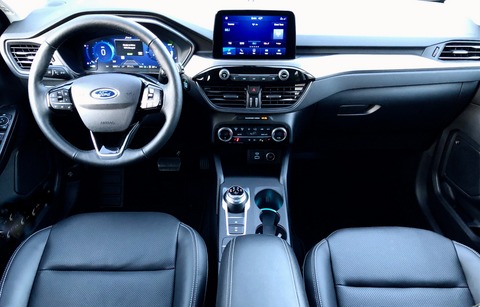
All of the infotainment and communication goes through the Ford Sync 3 system. FordPass Connect offers convenience features such as remote locking and unlocking of the doors and starting the engine, and the 4G LTE Wi-Fi hotspot can accommodate up to 10 devices, as far as 50-feet away. In the interest of keeping the driver’s eyes on the road, Clean Fleet Report was glad to see volume and channel selection knobs for the radio, the head-up display, and the heated and leather-wrapped steering wheel with 16 buttons and toggles to operate the telephone, radio and voice activation functions as well as shift display screens.
All seats are covered in ActiveEx, a vegan synthetic material designed to clean easily, resist stains and be more durable than leather. The driver gets a heated 10-way power adjustable seat with lumbar and memory, while the passenger gets 6-way power adjustments.
Backseat passengers will appreciate the sliding and reclining rear seat that provides 38.9-inches of rear leg room. Head and shoulder room is good, the fold down center armrest has cup holders joining the rear ventilation vents and power ports in the center console to add to rear-seat comfort. The 60/40 folding rear seat opens up 63.2-inches of cargo space.
Convenience and Safety
Interior convenience features include a rear view camera, auto dim rearview mirror, wireless phone charger, compass, dual zone automatic climate control, tilt and telescoping steering column, height adjustable front seatbelts, ambient lighting and a tire inflation kit. Exterior features include rain-sensing windshield wipers, LED fog lights, active grille shutters, heated exterior mirrors and roof rails.
Ford’s Co-Pilot360 driver-assist feature is standard and includes blind spot with cross traffic alert, lane keep alert and assist, pre-collision assist with automatic braking, rear pedestrian detection, forward collision warning and a post-crash alert system.
The 2022 Escape PHEV has an extensive list of standard and optional safety features in the Personal Safety System, including front, knee, side, and side curtain airbags as part of the Ford Safety Canopy. Additional safety systems include an anti-theft engine immobilizer, tire pressure monitoring system and front and rear parking sensors.
Pricing and Warranties
The 2022 Ford Escape PHEV comes in three trim levels with these base prices, including the mandatory $1,495 destination and delivery fee.
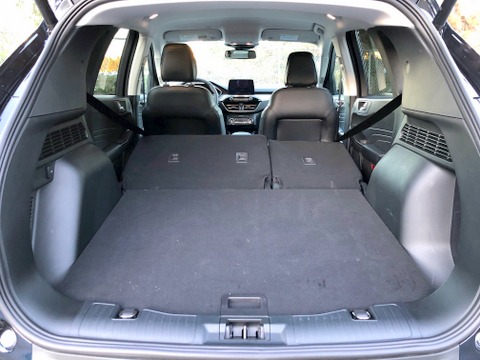
SE $35,435
SEL $38,170
Titanium $40,680
The 2022 Ford Escape PHEV comes with these warranties.
- Hybrid System Eight years/100,000 miles
- Powertrain Five years/60,000 miles
- Bumper-To-Bumper Three years/36,000 miles
- Roadside Assistance Five years/60,000 miles
Observations: 2022 Ford Escape Titanium PHEV
If you were to plug in the 2022 Ford Escape PHEV overnight, every night, that daily fully charged battery (37 miles) would be good for 13,500 miles of all-electric driving annually. You can do the math on how much money you would not be spending with the average price of a gallon of 87 octane hovering around $4.50 (at the time I tested the Escape PHEV). But more than the savings is the satisfaction of driving past gasoline stations as you go about your daily routine knowing the Escape PHEV is reducing the need for imported oil.
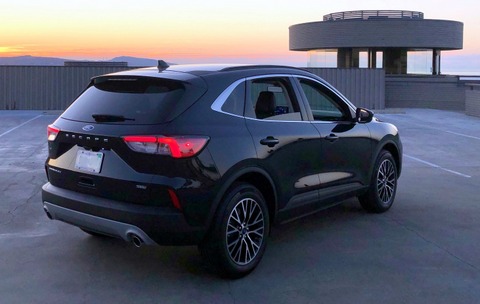
The importance to Ford the Escape plays in their vehicle mix and sales cannot be understated, as the compact crossover segment is fiercely competitive with at least one model from every major manufacturer. But for shoppers seeking a plug-in hybrid compact crossover there are a growing number of options, including the Toyota RAV4 Prime, Subaru Crosstrek Hybrid, Hyundai Tucson PHEV, Jeep Wrangler 4xe and Mitsubishi Outlander PHEV. So the 2022 Ford Escape PHEV is well positioned for drivers wanting to go far using little gasoline.
Make sure to opt-in to the Clean Fleet Report newsletter (top right of page) to be notified of all new stories and vehicle reviews.
Story and photos by John Faulkner.
If you like choice, you’ve come to the right category–the Ever-Expanding Compact Crossover Options:
The plug-in hybrid options are linked above. The full EVs as just starting to arrive (like the Hyundai Ioniq 5 and Kia EV6). The Hyundai Nexo Fuel Cell Electric Vehicle is available, but it’s only sold in select areas of California.
Hybrid options in this category include:
Road Test: 2019 Toyota RAV4 HybridFlash Drive: 2020 Honda CR-V Hybrid
Road Test: 2022 Hyundai Tucson Hybrid
Flash Drive: 2020 Ford Escape Hybrid
And the rest:
Flash Drive: 2023 Mazda CX-50
Road Test: 2021 Mazda CX-5
Road Test: 2018 Kia Sportage
Road Test: 2021 Ford Bronco Sport
Flash Drive: 2022 Subaru Forester
Road Test: 2021 Nissan Rogue
Road Test: 2020 Volkswagen Tiguan
Road Test: 2018 Chevrolet Equinox
Flash Drive: 2019 Jeep Cherokee
Road Test: 2019 Jeep Wrangler
Flash Drive: 2022 Mitsubishi Eclipse Cross
Flash Drive: 2022 Mitsubishi Outlander
Road Test: 2018 Toyota RAV4 Adventure
Road Test: 2020 Honda CR-V
Road Test: 2019 Hyundai Kona
Road Test: 2017 Ford Escape
Disclosure:
Clean Fleet Report is loaned free test vehicles from automakers to evaluate, typically for a week at a time. Our road tests are based on this one-week drive of a new vehicle. Because of this we don’t address issues such as long-term reliability or total cost of ownership. In addition, we are often invited to manufacturer events highlighting new vehicles or technology. As part of these events we may be offered free transportation, lodging or meals. We do our best to present our unvarnished evaluations of vehicles and news irrespective of these inducements.
Our focus is on vehicles that offer the best fuel economy in their class, which leads us to emphasize electric cars, plug-in hybrids, hybrids and diesels. We also feature those efficient gas-powered vehicles that are among the top mpg vehicles in their class. In addition, we aim to offer reviews and news on advanced technology and the alternative fuel vehicle market. We welcome any feedback from vehicle owners and are dedicated to providing a forum for alternative viewpoints. Please let us know your views at publisher@cleanfleetreport.com.

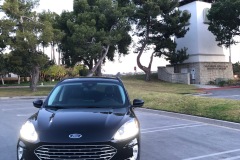
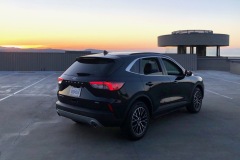
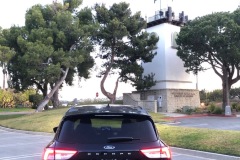
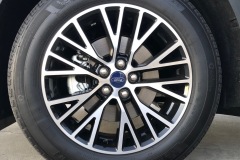
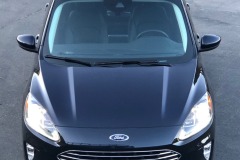
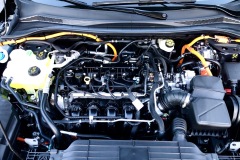
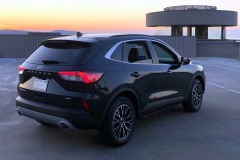
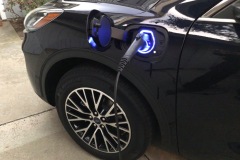
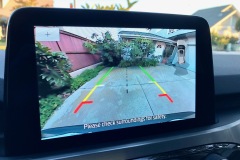
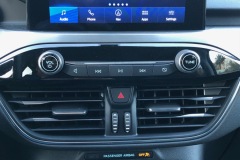
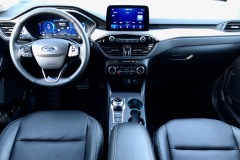
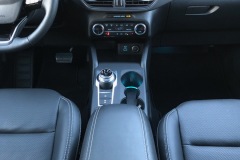
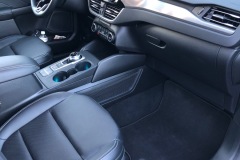
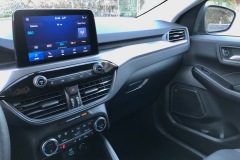
3 thoughts on “Road Test: 2022 Ford Escape PHEV Titanium FWD”